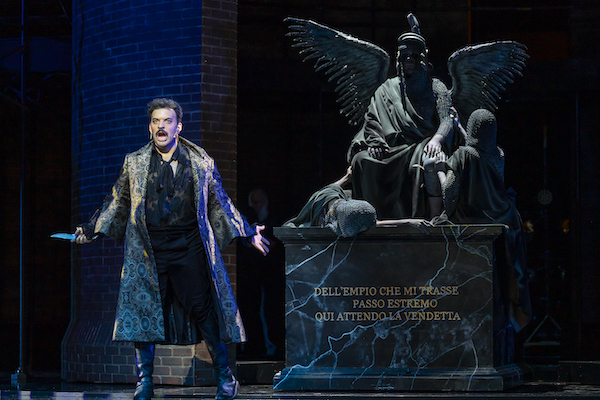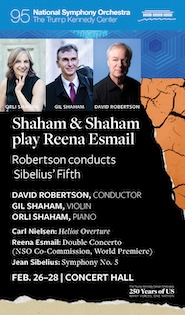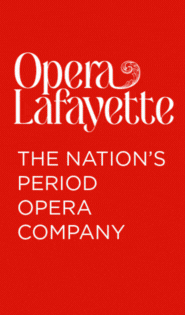Intriguing take on “Don Giovanni” rounds out a winning opera season at Wolf Trap

Cory McGee performed the title role in Mozart’s Don Giovanni, performed at Wolf Trap Opera Friday night. Photo: Scott Suchman
Mozart may have created the perfect opera in Don Giovanni. A work both comic and tragic, it touches on things eternal, rewarding each hearing with new insights. The young cast fielded by Wolf Trap Opera Company Friday night offered up a fine reading, even while negotiating the awkward amplification in the outdoor Filene Center. Wolf Trap’s last production of this opera was in 2012, the year most Washingtonians learned what a derecho was.
In the title role, bass Cory McGee followed up on a capital devilish turn last summer as Caspar in Der Freischütz. The bass, hailing from Virginia, sounded a little modest vocally, with some hoarseness at the top of the range, most noticeably in “Là ci darem la mano,” the duet with Zerlina. He showed a solid and alluring stage presence, costumed in the second act as an exotic satrap smoking a hookah, and his articulation sparkled in the Champagne Aria.
The vocal powerhouse of the evening was the splendid Donna Anna of soprano Renée Richardson, with a clarion tone that stood out in the cast from the moment of her entrance in Act I. She added some fiery high-flying embellishments to the end of her Act I aria “Or sai chi l’onore.” The Act II showpiece, “Non mi dir,” featured a sweet, pleading vocal quality, albeit better on shimmering high notes than the running passages.
Lunga Eric Hallam, already a sensation in the company’s Semele earlier this summer, nearly stole the show with an exquisitely phrased “Dalla sua pace” in Act I. A tenor truly worthy of keeping both of Don Ottavio’s arias from the cutting room floor, his musical sensitivity and tall frame made this often ridiculed character a model of noble sentiment rather than the sniveling simp he too often becomes.
Best comic relief award went to the Leperello of bass-baritone Andrew Gilstrap, a one-time Wolf Trap studio artist. With gruff tone and perfect timing, especially in the Catalog Aria, he blustered and complained his way through the evening, as the humiliations suffered at his master’s hand accumulated toward a dark end. Tiffany Townsend’s vibrato-edged tone heightened the edge of her Donna Elvira, laser-focused in the stratospheric fireworks of “Mi tradi,” but intonation going awry on forced longer high notes.
Bass Eric Lindsey’s dark-hued take on the Commendatore complemented the comic skills he displayed in Semele. Brilliant costuming and dark eye make-up added an eerie quality to his appearances as the living statue (wig and makeup design by Anne Nesmith). Local favorite Daniel Rich, a Baltimore baritone who trained at Morgan State University, made a burly Masetto, complemented by the demure, strangely reserved Zerlina of soprano Denis Vélez, comely both vocally and physically.
Conductor Stephanie Rhodes Russell made a much stronger showing in the pit, compared to her turn leading from the back of the stage in last year’s Susannah. She showed herself in command, with clear gestures putting McGee back on track after an early entrance toward the start of Act II. Balances were clean and favorable to the singers, with an especially pleasing turn by an uncredited mandolin player in McGee’s suave “Deh, vieni alla finestra.”
Given the production’s vivid sets and costumes (designed by Kristen Robinson and Oana Botez, respectively), it is a shame it will not be repeated. Director John de los Santos has transposed the action to England in the early 19th century, citing a parallel between the story and the rakish life of Lord Byron in his thoughtful program note. Don Giovanni’s exotic costume in the second act recalled Thomas Phillips’ portrait of Byron in a colorful costume he had acquired on his travels in Albania.
The director also claimed to draw inspiration from Dante’s Inferno, leading him to the idea of a set based on circles. A central brick tower opened to reveal the party scene, for the marvelous Act I finale, and the appearances of the stone guest. A black iron walkway and spiral staircase provided ingenious ways to stage the action.
Three masked supernumeraries, appearing first during the Overture, returned at the end of Act II. In a disappointing surprise twist on the opera’s most famous scene, they handed a knife to Leperello, who stabbed his employer to death. Instead of being dragged to hell, Don Giovanni climbed the staircase toward a light above.
Wolf Trap’s classical season concludes on August 30 with the Richmond Ballet’s performance of a choreography to Orff’s Carmina Burana, with live music by the Richmond Symphony and Chorus, joined by the City Choir of Washington. wolftrap.org




